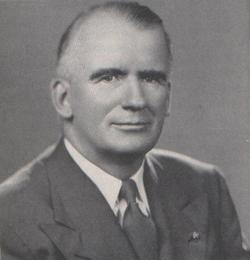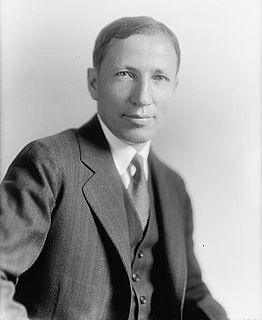A Quote by Jeanette Winterson
There must be some part of Man that is more than his daily round. Some part of him that will use his profit on a matter of no profit.
Related Quotes
The successful producer of an article sells it for more than it cost him to make, and that's his profit. But the customer buys it only because it is worth more to him than he pays for it, and that's his profit. No one can long make a profit producing anything unless the customer makes a profit using it.
[In] death at least there would be one profit; it would no longer be necessary to eat, to drink, to pay taxes, or to [offend] others; and as a man lies in his grave not one year, but hundreds and thousands of years, the profit was enormous. The life of man was, in short, a loss, and only his death a profit.
No one should be surprised at the difficulty of faith, if there is some part of his life where he is consciously resisting or disobeying the commandment of Jesus. Is there some part of your life which you are refusing to surrender at his behest, some sinful passion, maybe, or some animosity, some hope, perhaps your ambition or your reason? ... How can you hope to enter into communion with him when at some point in your life you are running away from him?
We need to reverse three centuries of walling the for-profit and non-profit sectors off from one another. When you think for-profit and non-profit, you most often think of entities with either zero social return or zero return on capital and zero social return. Clearly, there's some opportunity in the spectrum between those extremes. What's missing is the for-profit finance industry coming in to that area. Look at the enormous diversity of the for-profit financial industry as opposed to monolithic nature of the non-profit world; it's quite astonishing.
His books were part of him. Each year of his life, it seemed, his books became more and more a part of him. This room, thirty by twenty feet, and the walls of shelves filled with books, had for him the murmuring of many voices. In the books of Herodotus, Tacitus, Rabelais, Thomas Browne, John Milton, and scores of others, he had found men of face and voice more real to him than many a man he had met for a smoke and a talk.
Many entrepreneurs embrace profit-making and charitable purposes. Companies such as shoes seller Toms and eyeglass firm Warby Parker sell products at a profit with a pledge to devote part of their earnings to the needy. The number of for-profit businesses with a built-in charitable dimension has proliferated.
Two things, Christian reader, particularly excite the will of man to good. A principle of justice is one, the other the profit we may derive therefrom. All wise men, therefore, agree that justice and profit are the two most powerful inducements to move our wills to any undertaking. Now, though men seek profit more frequently than justice, yet justice is in itself more powerful.






































